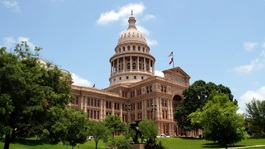
Publication
Senate Bill 29 on track to further Texas’ push as business hub
The Texas Business Court was established as a specialty court to handle complex business disputes on June 9, 2023, through the passage of H.B. 19.


United States | Publication | November 5, 2021
Federal OSHA published today in the Federal Register its "Emergency Temporary Standard (ETS) to protect more than 84 million workers from the spread of the coronavirus." We provide here the OSHA FAQs documents highlighting the critical provisions and requirements of the ETS.
The ETS compels covered employers to develop and enforce a mandatory COVID vaccination policy unless they adopt a policy requiring employees to choose either vaccination or weekly COVID testing and masking at work.
The ETS covers employers with 100 or more employees – firm- or company-wide – and provides options for compliance. It also requires employers to provide paid time to workers to get vaccinated and paid leave to recover from side effects.
Moreover, the ETS requires employers to:
The ETS does not require employers to pay for testing or face coverings, although employers may be required to pay for testing to comply with other laws, regulations or collective bargaining agreements.
OSHA is offering compliance assistance to implement the standard.
Employers must comply with most ETS requirements within 30 days of today's publication, and within 60 days for testing requirements.
We will report separately on the numerous constitutional and other legal challenges being filed by the multiple states' Attorneys General and business organizations to invalidate the ETS.

Publication
The Texas Business Court was established as a specialty court to handle complex business disputes on June 9, 2023, through the passage of H.B. 19.

Publication
The Texas Business Court has repeatedly held that it lacks subject-matter jurisdiction to hear cases first-filed before September 1, 2024—regardless of the procedural posture by which the case arrived at the Business Court.
Subscribe and stay up to date with the latest legal news, information and events . . .
© Norton Rose Fulbright US LLP 2025